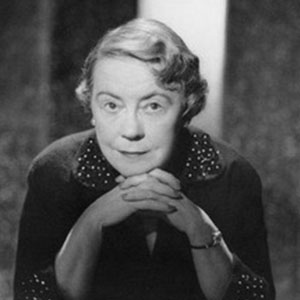Ann O’Hare McKormick was an award-winning reporter for The New York Times. Known for covering major world events with unparalleled insight, she was the first woman to win a Pulitzer for journalism in a major category.
Early Life
Ann O’Hare McKormick was born in Yorkshire, England in 1880. Her American parents returned to the United States when she was baby. McKormick grew up in Columbus, Ohio, where she later attended the College of St. Mary of the Springs.
In 1911, McKormick married Dayton businessman Francis J. “Frank” McCormick, Jr. His work as an importer and executive of the Dayton Plumbing Supply Company took him all over the world, and his wife Ann frequently accompanied him on travels abroad. She entered journalism as associate editor of the weekly Catholic Universe Bulletin in Cleveland.
Career at The New York Times
After writing a few articles for The New York Times Sunday Magazine, McCormick approached The New York Times about serving as a freelance reporter, volunteering to cover stories not already investigated by the Times‘ foreign reporters in Europe. While less experienced than her colleagues, McCormick recognized the rise of Benito Mussolini and was one of the first reporters to provide in-depth coverage of the growing Fascist movement in Italy.
In 1936, McKormick joined the editorial staff of The Times. Arthur Hays Sulzberger, president and publisher of The Times, told McCormick: “You are to be the ‘freedom’ editor. It will be your job to stand up on your hind legs and shout whenever freedom is interfered with in any part of the world.”
One year later, McKormick won the Pulitzer Prize for foreign correspondence, becoming only the second woman to receive a Pulitzer Prize in journalism and the first to win in a major category. The other awards she received included: The New York Evening Post Medal (1934); the American Woman’s Association Medal (1939); the Theodore Roosevelt Memorial Medal of the Woman’s Roosevelt Memorial Association (1941); and the Gold Medal of the National Institute of Social Science (1942).
Over her long career, McKormick covered some of the world’s most important and intriguing personalities, including Éamon de Valera, Leon Blum, Adolf Hitler, Joseph Stalin, Eleftherios Venizelos, Engelbert Dollfuss, Gustav Stresemann, Kurt Schusnigg, Winston Churchill, Franklin D. Roosevelt, Harry S. Truman and Dwight D. Eisenhower.
McKormick died in 1954 at the age of 72. In her obituary in The New York Times, the newspaper characterized McKormick as the “expert the experts looked up to.” It further stated, “In whatever part of the shrinking world her dateline put her, the sound, pungent reports of her conversations and observations won universal praise.”








